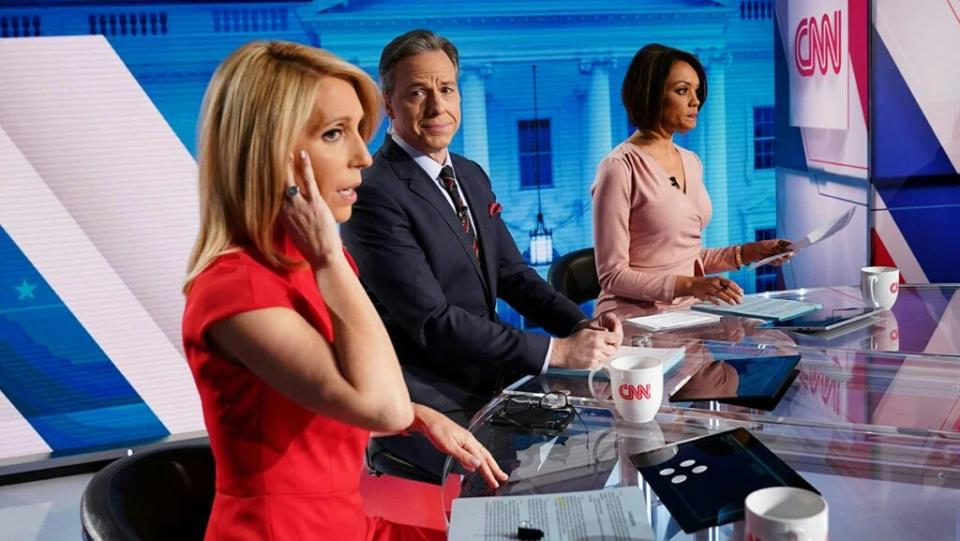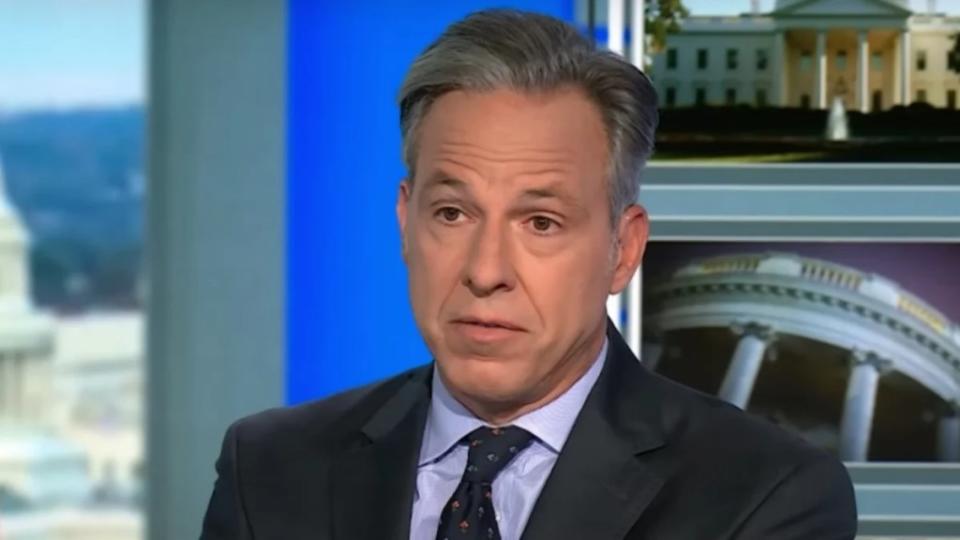CNN’s Presidential Debate: A Rematch With New Rules That Will Make History
As President Joe Biden and Donald Trump gear up for a rematch on Thursday evening, nearly everything about this presidential debate will be different than previous election cycles, aside from one thing — the candidates.
The decision to bypass the Commission on Presidential Debates has allowed the 90-minute event to happen nearly three months earlier than in any previous election year. And CNN has introduced strict new rules — there will be no live audience, and candidates’ microphones will be turned off by default — as well as commercial breaks.
That will ostensibly prevent moderators Dana Bash and Jake Tapper from having to do battle with the candidates. Campaign staff also will not be permitted to interact with the candidates at any time and props or pre-written notes are prohibited.
The changes are meant to restore a semblance of order to debates and in particular tackle the heckling, inspired largely by Trump’s behavior, that became commonplace in 2016 and 2020.
But it remains to be seen whether the changes, amid increased cord-cutting, will help CNN top the 2016 match-up between Trump and Hillary Clinton, which drew 84 million viewers, as the most-watched debate in history.
“It’s probably not going to be Super Bowl level, but I do think it’s going to be hard to avoid,” Angelo Carusone, the president of Media Matters for America, told TheWrap. “At a minimum people are going to tune in because of the confrontational potential for a train wreck.”
Brian Stelter, CNN’s chief media correspondent from 2013 to 2022, said he expects an “unforgettable” debate featuring “the most dramatic contrast between presidents and personalities and policies that America has seen in decades.” But Stelter, now a special correspondent for Vanity Fair, also noted that “the success of this debate cannot and will not be measured through Nielsen numbers. Simply put, reruns don’t rate as well as new episodes. And this entire election is a rerun.”
Cutting out the commission in order to hold the debates earlier while enacting format overhauls could have significant implications for the presidential race, providing a crucial turning point far ahead of schedule, as this is by far the earliest presidential debate ever, coming 89 days ahead of any previously held debate before an election.
“The commission was in many ways a relic,” Carusone said. “They were disconnected from what current programming looks like.”
Cutting out the middleman and a coin toss
Since 1988, the commission has organized presidential debates and allowed all news networks to simulcast them. The organization controlled all aspects of the format, deciding on the venues and moderators, with networks themselves only dealing with the technical aspects of the broadcast.
The two debates that Trump and Biden have agreed to — first on CNN and then on ABC News in September — give the power back to the networks by taking out the middleman.

While bypassing the commission and organizing debates through a network directly limits the moderator pool, it allows for more freedom in format. “Individual networks and news networks have their own approach to doing these debates because they do them during the primaries,” Carusone added.
Both candidates will appear at a similar-looking podium during the event, according to CNN. The results of a coin toss allowed the Biden campaign to select the podium on the right side of the stage, putting Trump on the left. The Trump campaign then decided the order of closing arguments, where Trump will have the final word.
Carusone views most of these alterations as positive developments, especially the rule keeping candidates’ microphones off unless they are responding to a question. “That probably warrants a lot more attention, just in terms of it being a workable solution,” he said.
Limiting interruptions
Presidential debates have been marked by memorable moments, ones that didn’t involve interruptions or crosstalk. In 1984, 73-year-old incumbent Ronald Reagan scored points against challenger Walter Mondale when replying to whether he had the stamina to handle a major national security crisis. “I want you to know that also I will not make age an issue of this campaign,” Reagan said. “I am not going to exploit, for political purposes, my opponent’s youth and inexperience.”
Since Trump came on the political scene in 2015, however, debates have been defined by interruptions and antagonizing rhetoric.
At one point during a 2020 debate, moderator Chris Wallace attempted to rein in consistent interference, saying, “I think the country would be better served if we allowed both people to speak with fewer interrupters. I’m appealing to you sir to do that.” When Trump protested that Biden also needed to follow the debate rules, Wallace replied, “Well frankly you’ve been doing more interrupting.”
In the days leading up to the debate, the Trump campaign has sought to undermine CNN and its hosts.

On Monday, CNN’s Kasie Hunt abruptly cut short an interview with Karoline Leavitt, a campaign spokeswoman, after Leavitt expressed distrust of the network and insinuated that Tapper and Bash would not be fair and impartial moderators.
“President Trump is knowingly going into a hostile environment on this very network, on CNN, with debate moderators who have made their opinions about him very well known over the past eight years and their biased coverage of him,” Leavitt said.
The network expressed full support for Tapper and Bash in a statement. They are “well respected veteran journalists who have covered politics for more than five decades combined. They have extensive experience moderating major political debates,” CNN said. “There are no two people better equipped to co-moderate a substantial and fact-based discussion.”
The former president has also regularly diminished Biden’s mental acuity, arguing that he wouldn’t pass a cognitive exam, while simultaneously insinuating – without evidence – that the President will be using performance-enhancing substances and challenging him to a drug test.
A potential ratings coup
Securing the first debate is expected to be a coup for CNN, which will likely see massive ratings from the event, analysts said.
Presidential debates are generally among the most-viewed televised events of the year during an election season, behind high-profile sporting events like The Super Bowl.
The success of this debate cannot and will not be measured through Nielsen numbers. Simply put, reruns don’t rate as well as new episodes. And this entire election is a rerun.”
Brian Stelter, Vanity Fair Special Correspondent
When Trump and Biden went head-to-head for the first time, in September 2020, over 73 million people watched the debate, according to Nielsen figures. In 2020, Fox News drew 18 million of those viewers, the lion’s share among all the networks.
Those figures, however, were no match for the first debate in 2016 between Trump and Clinton.
But 2024 is “an extremely different media environment” than 2016 or 2020, Stelter said. “Sure, many tens of millions of people will still watch the CNN debate across a dozen different networks, but it will also be streamed and clipped and reconstituted in ways that barely mattered the first time Trump debated,” he said. “Ratings forecasts need to factor in how fractured the media environment has become and how fatigued the viewing public has become.”
From Carusone’s perspective, the ratings simply need to be significant enough to “influence the narrative, the trend line, or the trajectory of the campaign. And I do think, from that perspective, it will be a pivot point.”
The post CNN’s Presidential Debate: A Rematch With New Rules That Will Make History appeared first on TheWrap.

 Yahoo News
Yahoo News 
